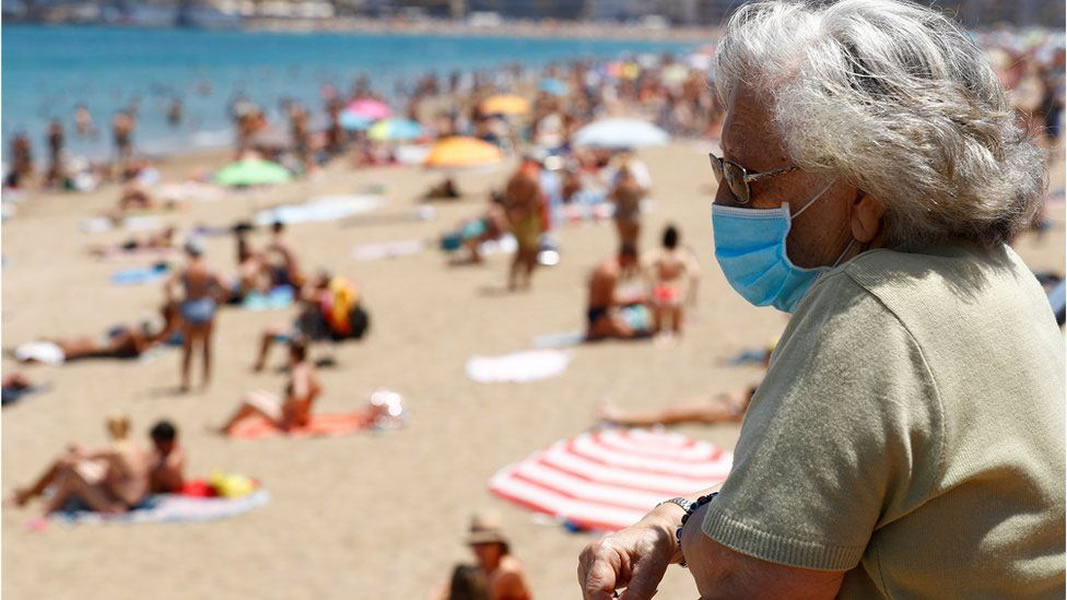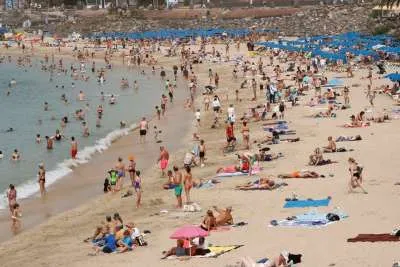Countdown in the Canaries to no masks outdoors!
- 25-06-2021
- National
- Canarian Weekly
The Countdown has started and there are just a few hours before we officially don’t have to wear masks outdoors in public in the Canary Islands. From tomorrow, a national decree from Spain relaxes the rules for the use of masks outdoors in public, as long as the safety distance of 1.5 metres between non-cohabitants is complied with. This means when you’re outside your mask can be in your pocket or in your handbag as long as you are distanced.
Its use will only be mandatory in public places indoors, including shops, bars, restaurants, commercial centres, hairdressers, and on public transport. It will also have to be worn outside at mass events or anywhere that distancing cannot be maintained, and the current fine system remains in place if not worn when necessary, or if you don’t have one in your possession when out in public, even if by yourself.
The Official State Gazette (BOE) has published the new rule today, which as of tomorrow, comes into effect in the aforementioned circumstances. You can read the full BOE with the new rule: https://www.boe.es/diario_boe/txt.php?id=BOE-A-2021-10585
This new rule applies to the whole of Spain, including the Canary Islands, and even though it coincides with Tenerife going in to Level 3 and the regional Government wants to appeal against it, at the time of publication there has been no confirmed news against this new ruling.
New rules for mask:
Law 2/2021, of March 29, on urgent prevention, containment and coordination measures to face the health crisis caused by Covid-19, is amended as follows:
Mandatory use of masks:
1) People six years of age and older are obliged to use masks in the following cases:
a) In any closed space for public use or that is open to the public.
b) In any open-air space in which due to the crowding of people, it is not possible to maintain a minimum distance of 1.5 metres between them, except for groups of cohabitants.
c) In air, sea, bus, or rail transport, including platforms and passenger stations, or by cable car, as well as in complementary public and private passenger transport in vehicles with up to nine seats, including the driver, if the occupants of the tourism vehicles (passenger cars) do not live in the same address. In the case of passengers on ships and boats, it will not be necessary to wear masks when they are in their cabins or on an open air deck.
2) The obligation contained in the previous section will not be enforceable in the following cases:
a) To people who present some type of illness or respiratory difficulty that may be aggravated by the use of the mask or who, due to their situation of disability or dependency, do not have the autonomy to remove the mask, or who present behavioural alterations that make its use unfeasible.
b) In the event that, due to the very nature of the activities, the use of the mask is incompatible, in accordance with the indications of the health authorities.
c) In those places or closed spaces for public use that are part of the place of residence of the groups that meet there, such as institutions for the care of the elderly or people with functional diversity, the units intended for the collective residence of essential workers or other groups that meet similar characteristics, as long as said groups and the workers who perform their duties there, have vaccination coverage against SARS-CoV-2 greater than 80% with a complete schedule, accredited by the competent health authority.
This last exception will not apply to external visitors or to workers in residential centres for the elderly or with functional diversity.
3) The use of masks in prisons where there is mobility of inmates, both outdoors and in closed spaces, will be governed by specific rules established by the competent prison authority.
Fines for not carrying a mask:
The Minister of Health, Carolina Darias, announced a few days ago that the reform of the so-called new normal law maintains intact, but article 31 of that norm is the one that is updated, which is the one that establishes that "non-compliance with the prevention measures and the obligations established" in this law can be considered as "administrative public health offenses" and therefore "sanctioned according to the provisions of the General Public Health Law with that limit of 100 euros, as it is classed as a minor offense.”
Other articles that may interest you...
Trending
Most Read Articles
Featured Videos
TributoFest: Michael Buble promo 14.02.2026
- 30-01-2026
TEAs 2025 Highlights
- 17-11-2025


























































